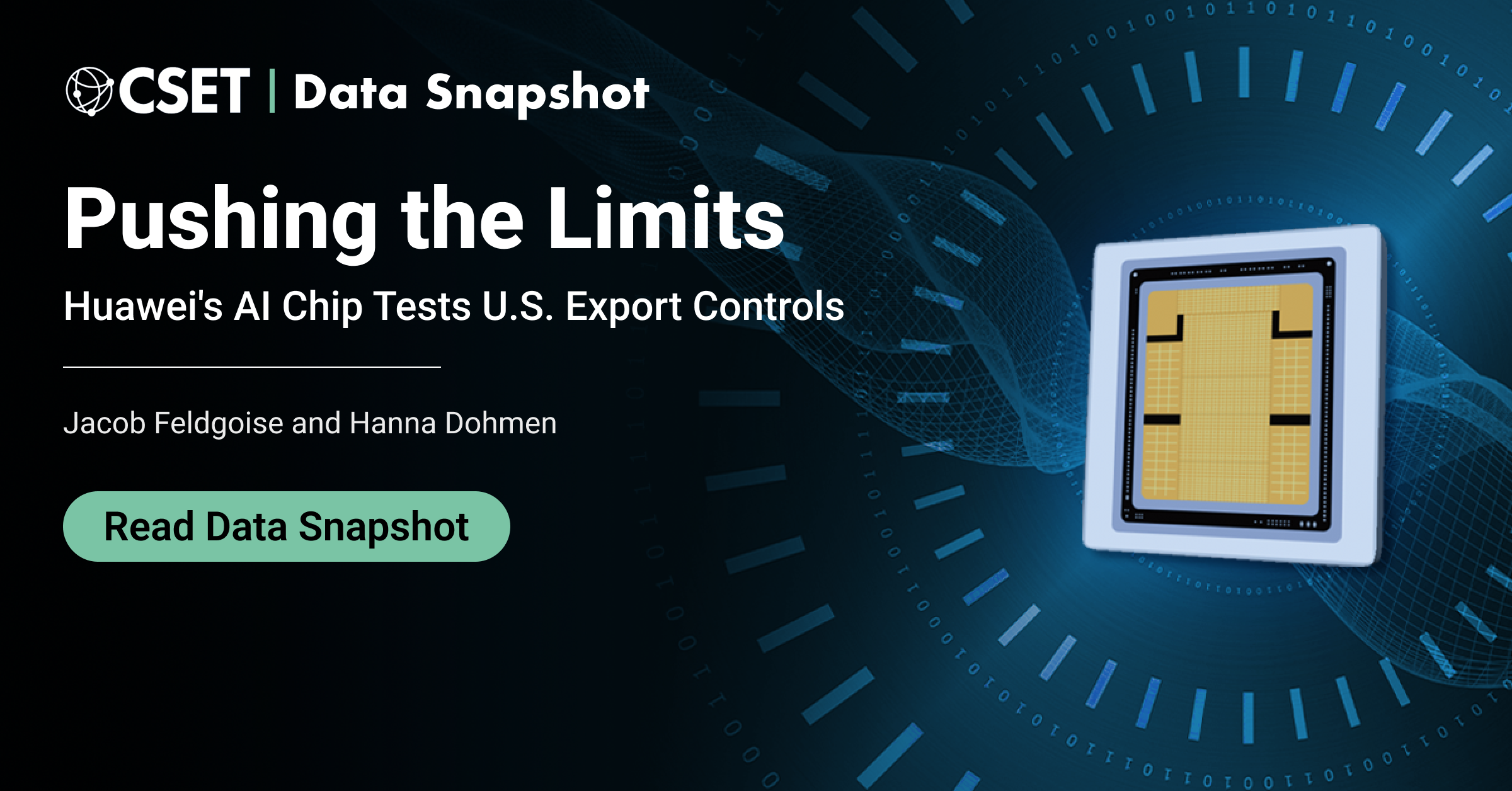Pushing the Limits: Huawei's AI Chip Tests U.S. Export Controls | Center for Security and Emerging Technology
Since 2019, the U.S. government has imposed restrictive export controls on Huawei—one of China’s leading tech giants—seeking, in part, to hinder the company’s AI chip development efforts. This data snapshot reveals how exactly Huawei’s latest AI chip—the Ascend 910B—improves on the prior generation and demonstrates how export controls are likely hindering Huawei’s production.| Center for Security and Emerging Technology


